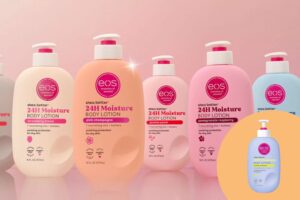Does Lotion Expire? How to judge and influence factors
Lotions and moisturizers are essential to daily skincare routines, providing hydration, nourishment, and protection for our skin. However, many of us often need to pay more attention to the expiration date of these products. In this detailed guide, we will explore whether lotions expire, how to identify expired lotions, the potential risks of using them, and best practices for extending their shelf life.
What Is Lotion Expiration and Why Does It Matter?
Lotion expiration is when a lotion or moisturizer no longer maintains its original effectiveness, safety, or texture. Like food and medications, lotions have a shelf life determined by their ingredients, formulation, and storage conditions. Expired lotions can lose their ability to hydrate the skin properly and pose health risks due to bacterial contamination and the breakdown of active ingredients.
How Long Do Lotions Typically Last?
The shelf life of a lotion largely depends on its type, ingredients, and packaging. In general:
- Unopened Lotions: Most unopened lotions last 2 to 3 years from manufacturing. This time frame can vary based on the formulation and whether the product contains preservatives.
- Opened Lotions: Once a lotion is opened, it is exposed to air, light, and bacteria, which can shorten its shelf life. Typically, opened lotions last around 6 to 12 months. Lotions with natural or organic ingredients often lack strong preservatives and may have a shorter shelf life.
Attention must be paid to the expiration date on the packaging, which can be marked with phrases like “Best Before,” “Use By,“ or “PAO“ (Period After Opening).
How to Identify Expired Lotion
Expired lotions can be identified through various signs, which may indicate that the product is no longer safe or practical to use. Here are some key indicators:
1.Changes in Color and Consistency
Lotion that has expired may change in color, becoming darker or lighter than its original shade. Additionally, expired lotions often separate into layers or develop a lumpy or watery consistency, which indicates that the formulation has degraded.
2.Unpleasant Odor
A change in scent is another telltale sign of an expired lotion. If a lotion develops a sour, rancid, or musty smell, the ingredients likely breakdown, or bacterial growth has occurred. Always trust your sense of smell when determining if a lotion is still good.
3.Texture Changes
If a lotion feels grainy, sticky, or excessively oily compared to how it initially felt, it strongly indicates that the product is no longer effective. Expired lotions may also leave a filmy residue on the skin, signaling that the emulsifiers in the formula have deteriorated.
4.Skin Reactions
Using expired lotion can lead to adverse skin reactions such as redness, itching, irritation, or even allergies. If you notice any unusual reactions after using a lotion, it is best to discontinue use and consider the possibility that it has expired.
Risks Associated with Using Expired Lotions
Using expired lotion is ineffective and can pose several risks to skin health. The primary concerns include:
1.Bacterial Contamination
Expired lotions can become breeding grounds for bacteria, mold, and yeast. This contamination can lead to skin infections, especially in people with sensitive skin or compromised immune systems. Bacteria like Staphylococcus aureus and Pseudomonas aeruginosa have been found in contaminated cosmetic products, posing a significant risk.
2.Loss of Efficacy
Over time, lotions’ active ingredients, such as vitamins, antioxidants, and humectants, can degrade. The lotion may no longer provide the intended benefits, such as moisturizing, soothing, or anti-aging effects.
3.Chemical Breakdown
Certain ingredients, like fragrances, preservatives, and essential oils, can break down and oxidize over time, potentially causing skin irritation, allergic reactions, or harmful effects. Chemical breakdown can also result in a foul smell or discoloration of the lotion.
Best Practices for Extending Lotion Shelf Life
To maximize the shelf life of lotions and ensure they remain effective and safe, follow these best practices:
1.Store in a Cool, Dry Place
Exposure to heat, light, and humidity can accelerate the degradation of lotion ingredients. Store lotions in a cool, dry place away from direct sunlight, such as a cabinet or drawer. Avoid keeping lotions in areas like bathrooms, where humidity levels are typically high.
2.Keep the Cap Tightly Closed
Air exposure can lead to oxidation and bacterial growth in lotions. Ensure the cap is tightly closed after each use to prevent air, dust, and contaminants from entering the bottle or jar.
3.Use Clean Hands or Applicators
When applying lotion, use clean hands or a sanitized applicator to prevent bacteria from entering the product. For jar-type lotions, consider using a clean spatula or scoop instead of dipping fingers directly into the container.
4.Pay Attention to Expiration Dates
Always check the expiration date or PAO symbol (an open jar icon with a number indicating how many months the product is safe to use after opening). Discard any lotions that are past their expiration date or show signs of spoilage.
5.Opt for Pump Bottles When Possible
Pump bottles minimize air exposure and the risk of contamination, extending the product’s shelf life. Consider choosing lotions packaged in airless pump dispensers over jars or tubes.
Try Xiangxiang Daily Now!
We Help You Launch New Products, And Continue To Grow. Try Us With 20% Off Your First Order!
Conclusion
Understanding the shelf life of lotions and recognizing the signs of expired products are crucial for maintaining healthy skin and avoiding potential risks. By following best practices for storing and handling lotions, you can extend their shelf life and ensure they remain safe and effective. Always respect your skin care products regularly and prioritize safety by discarding any signs of expiration.
Table of Contents
Latest Blog Posts
Check out the latest industry trends and take inspiration from our updated blogs, giving you a fresh insight to help boost your business.




